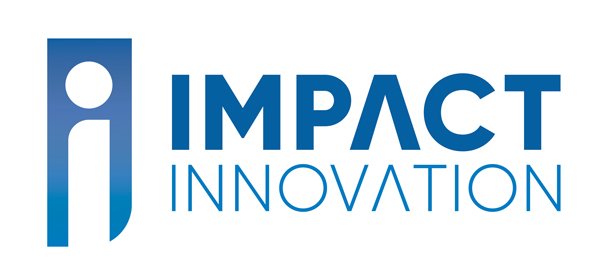Twenty-three entrepreneurs have secured a coveted place on a new accelerator programme, which will help them overcome the challenges posed by the coronavirus pandemic while championing diversity across the Welsh business start-up landscape.
The business founders beat entrepreneurs from across Wales to secure a place on the Excelerator Programme, which will see people from under-represented groups take part in a Welsh Government-funded 12-week immersive accelerator programme. The aim is to help them launch and grow their business idea or scale an existing business.
The virtual programme will include a series of expert masterclasses for founders, as well as mentorship and professional coaching from business start-up and scaleup experts. It is being delivered as part of the Business Wales Accelerated Growth Programme, which is part-funded by the European Regional Development Fund through the Welsh Government.
The entrepreneurs taking part are:
Firuj Ali, founder of Ariana Design, a children’s clothing range.
Sweeta Durrani, founder of SOHA, an online import and export business for countries such as Afghanistan where access to online shopping is limited.
Patience Bentu, founder of Pay Talks, a talk show on topical issues that will provide a platform for motivational speakers.
Amy Sinha, a classically trained singer and founder of Amy Sinha Ltd, a professional voice-over agency.
Dr Youmna Mouhamad, founder of Myana Naturals, a detangling technology for black women with natural hair.
Rohit Kulkarni, founder of Log 6, a range of natural, safe and powerful disinfectant products that are a credible alternative to bleach and alcohol-based hand sanitisers.
Kamal Ali, founder of My Audio Islam, an app specialising in Islamic audio content.
Emma Hopkins, founder of Lifeshaper, a coaching business specialising in stress management.
Vanessa Willes, founder of Mangle & Wringer, a manufacturer of eco-friendly cleaning and laundry products free of single-use plastics, palm oil and petrochemicals.
Ranjit Ghoshal, founder of One Million Steps, a web and app package for charities or businesses to launch health and well-being fundraising challenges at scale, locally and internationally.
Anita Davies, founder of Freedom 2 Be, a virtual admin and training agency providing full back office support to small and medium size businesses.
Sally Brooks, founder of Brooklands People Development Services, a development company helping people and employees to achieve their full potential.
Tony Thomas, founder of Data Mining, which looks at animal and human health data to seize the unprecedented opportunities that big data provides.
Martina Fabricci, founder of CRISPR Biotech Engineering, an e-learning platform for scientific research across different cellular engineering, biotechnology and genome editing domains.
Gurinder Randeva, founder of Glamdeva, an online platform to easily compare prices, book and pay for hair and makeup services anywhere in the UK.
Ed Willes, founder of Rcollections, a peer-to-peer fashion rental market helping people save money and the planet.
Jessica Leigh Jones, founder of iungo Solutions, a career tech platform that aggregates and connects millions of employability factors to create step-by-step career routes.
Oliver Smith, founder of Solus Supply, an online resale shop and sustainable streetwear clothing brand.
Catherine Williams, founder of O'Honni, a luxurious lingerie brand for women who have had mastectomies and lumpectomies.
Fabian Niavarany, founder of My Local Hub, which aims to create a network of local hubs for online deliveries which could be highly disruptive for the UK parcel industry.
Nicola Perkins, founder of FE HR Hub, a human resources hub for professionals working in the further education sector.
Louis Cochrane, founder of Deliverbuzz, an on-demand delivery, click & collect and table service for local shops, supermarkets, food and retail businesses.
Jennifer Barnfield, founder of PEPP Ltd, which creates bespoke card packs with positive communication and language to empower customers. She also delivers training to support other entrepreneurs to create their own card packs.
The Excelerator Programme will take entrepreneurs on a step-by-step journey from business idea to paying customers and a sustainable business model. It will also support participants to develop their core business skills and a ‘success mindset’.
Swansea-based Dr Youmna Mouhamad, who has invented a detangling technology for black women with natural hair, said she is looking forward to taking part in the Excelerator Programme:
“I am so honoured to have been chosen to be part of this Programme. I know that having a good idea is one thing while turning that idea into a high-growth business is another challenge altogether. I believe that access to experts in this field will really help me take my company to the next level and I can’t wait to start learning and putting my new skills into action.”
Minister for Economy, Transport and North Wales, Ken Skates, said:
“I wish to congratulate these business founders for being selected to take part in the inaugural Excelerator Programme. We recognise that women, young people, those from a BAME background and people living with a disability are significantly under-represented when it comes to business start-ups in Wales, and we want to help change that.
“This Programme is part of our £40 million investment in delivering on our ‘Covid Commitment’. This funding is there to ensure anyone over 16 in Wales can access advice and support to find work or pursue self-employment. Encouraging and supporting entrepreneurship will a big part of this commitment, so this programme will help entrepreneurs with high-growth potential access the expertise they need to take their companies to the next level.
“This presents a fantastic opportunity for the 23 entrepreneurs taking part, who will receive expert support to develop a sustainable, robust business model. The programme will provide invaluable access to a network of experienced mentors and peers, who will work with them to develop a clear growth plan.”
For further information on the Excelerator Programme see www.businesswales.gov.wales/growth/agpexcelerator










